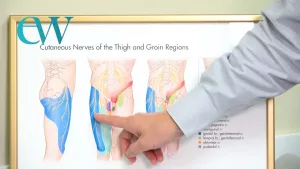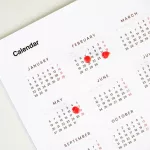Hey there! If you’ve ever gotten a phone call that sounded “official,” an email about a new Medicare card, or a flashy ad promising a free flex‑card, you’ve probably wondered whether it’s legit. You’re not alone—scammers love to dress up as trustworthy agencies because they know how much we rely on Medicare for our health and peace of mind. In the next few minutes, I’m going to walk you through exactly how to spot those tricks, protect your personal information, and stay confident that your benefits stay yours.
Grab a cup of tea, settle in, and let’s tackle this together. I’ll share real‑world stories, simple checklists, and a step‑by‑step plan you can start using today. Ready? Let’s go.
Why Scams Matter
Scams aren’t just annoying—they can drain savings, damage credit, and even put your health at risk. According to the Centers for Medicare & Medicaid Services, Medicare fraud siphons off roughly $30 billion every year. That’s money that could be covering prescriptions, doctor visits, or even a weekend getaway with the grandkids. When fraud hits, it’s not just the system that suffers; it’s you and your family.
Understanding the stakes helps us stay alert. Think of it like wearing a seatbelt: you might never need it, but you’ll be glad it’s there when the unexpected happens.
Common Scam Types
| Scam Type | Typical Hook | Who’s Targeted? |
|---|---|---|
| Phone/Robocall Impersonation | “We’re from Medicare, need your number.” | Seniors, recent retirees |
| Fake “New Medicare Card” Offers | “Your card is being upgraded—give us info.” | Anyone with a card |
| Flex‑Card / Free Grocery Promises | “Get a $300 flex card today.” | Medicare Advantage members |
| Open‑Enrollment Pressure Tactics | “Call now or lose coverage.” | Anyone reviewing plans Oct‑Dec |
| Online Phishing Sites | “Click here to verify eligibility.” | Email users |
These examples come straight from the Senior Medicare Patrol’s recent alerts. For instance, the “Scammers Call About ‘New’ Medicare Cards” story describes callers who sound eerily professional, yet they’re just fishing for your Medicare number to file false claims on equipment they’ll never deliver.
Five Warning Signs
When you see any of these red flags, hit the mental “stop” button and double‑check before you respond.
Unsolicited Contact
If a call, email, or text shows up out of the blue, be skeptical. Genuine Medicare communications come with a letter first or are part of a routine you initiated.
Requests for Personal Data
Scammers love your Medicare number, Social Security number, and bank details. Medicare will never call and ask for that info. The FTC reminds us: “Never give personal information to anyone who contacts you unexpectedly.”
Caller‑ID Spoofing
Just because the number says “Medicare” on your phone doesn’t mean it’s real. Spoofing technology lets scammers mask any number they want. If you’re unsure, hang up, look up the official 1‑800‑MEDICARE number, and call back.
Urgency or Pressure
Words like “act now,” “your benefits will be lost,” or “limited time offer” are classic scare tactics. Real agencies give you time to think.
Links or Attachments
Never click a link that claims you need to “verify” your Medicare status. Instead, type the URL yourself (medicare.gov) and log in securely.
Prevention Plan
Now that we know what to watch for, let’s put together a practical plan you can follow every day.
Verify Before You Share
Pick up the phone and dial the official number yourself: 1‑800‑MEDICARE. If a caller claims to be from Medicare, they’ll understand that you need to verify the call. Likewise, when you get an email, check the sender’s domain—legitimate messages come from @medicare.gov or your plan’s official domain.
Monitor Your Medicare Summary Notice (MSN)
The MSN is the monthly report that shows every claim Medicare processed for you. You can view it online by signing into your Medicare.gov account. Keep a simple checklist:
- Date of service
- Provider name
- Procedure or item
- Amount billed vs. amount Medicare paid
If something looks off—perhaps a shoe repair service you never ordered—report it right away.
Report Suspicious Activity
Speed is your ally. Call 1‑800‑MEDICARE, the FTC at ReportFraud.ftc.gov, or contact your state’s Senior Medicare Patrol. When you call, have these details ready:
- Exact phone number or email address of the scammer
- What they asked for (Medicare number, SSN, bank info)
- Any recordings or screenshots you saved
Protect Your Personal Data
Think of your Medicare number like the key to your house. Keep it hidden, don’t write it on sticky notes, and shred any mail that includes it. Use strong, unique passwords for your Medicare.gov account and enable two‑factor authentication (2FA). If you suspect your information was compromised, place a fraud alert on your credit reports through the major bureaus.
Educate Family and Caregivers
Scammers often target loved ones who may be less tech‑savvy. Share this simple script with them: “If anyone asks for my Medicare number, I’ll hang up and call 1‑800‑MEDICARE to check.” A printed cheat‑sheet on your fridge can be a lifesaver.
Stay Updated on New Tactics
Scam tactics evolve. Subscribe to alerts from the Senior Medicare Patrol or the FTC, and keep an eye on local news. Knowing that “flex‑card” scams surged in 2023, for example, helps you stay vigilant when you see a flashy ad promising free groceries.
Tools & Resources
Having the right tools at your fingertips makes protection easier.
- CMS Medicare Fraud Hotline: 1‑800‑MEDICARE
- Senior Medicare Patrol State Locator:SMP Resource Center
- FTC Consumer Alerts:FTC (search “Medicare scams”)
- FCC Guide on Caller ID Spoofing:FCC
Download a free Medicare Scam Cheat‑Sheet (PDF) from your local SMP office—they’ve designed it to fit right on a business card, so you can hand it out at community centers or keep it in your wallet.
Real Stories – Lessons Learned
Story 1: The “New Card” Call That Almost Got John’s SSN
John, a 72‑year‑old retiree, received a call from someone claiming to be a “Medicare enrollment specialist.” The caller said his card needed a “quick update” and asked for his Social Security number. John remembered a tip from his grandson: “Never give that info unless you called first.” He hung up, called 1‑800‑MEDICARE, and learned the call was a spoof. John’s quick hesitation saved him from identity theft.
Story 2: Mary’s Flex‑Card Email That Was Too Good to Be True
Mary got an email promising a $250 “flex card” for groceries. The link led to a site asking for her Medicare number, bank account, and driver’s license. She recalled the FTC’s warning about unsolicited offers and forwarded the email to her local SMP. It turned out to be a phishing scam that had already stolen data from dozens of seniors in her state.
These anecdotes show that a moment’s pause can be the difference between safety and a headache. Have you ever had a close call? Share your experience in the comments—your story could protect someone else.
Conclusion
Scrolling through all that information might feel overwhelming, but remember the three pillars: verify, monitor, and report. Every time you double‑check a caller’s identity, review your Medicare Summary Notice, or flag a suspicious email, you’re reinforcing a shield around your health benefits and your hard‑earned savings.
Scammers thrive on surprise, but we’re better prepared now. Grab that cheat‑sheet, tell a friend, and keep the conversation going. Your vigilance not only protects you—it protects the whole community of seniors who rely on Medicare.
Stay safe, stay informed, and keep those benefits where they belong—right in your pocket.

























Leave a Reply
You must be logged in to post a comment.